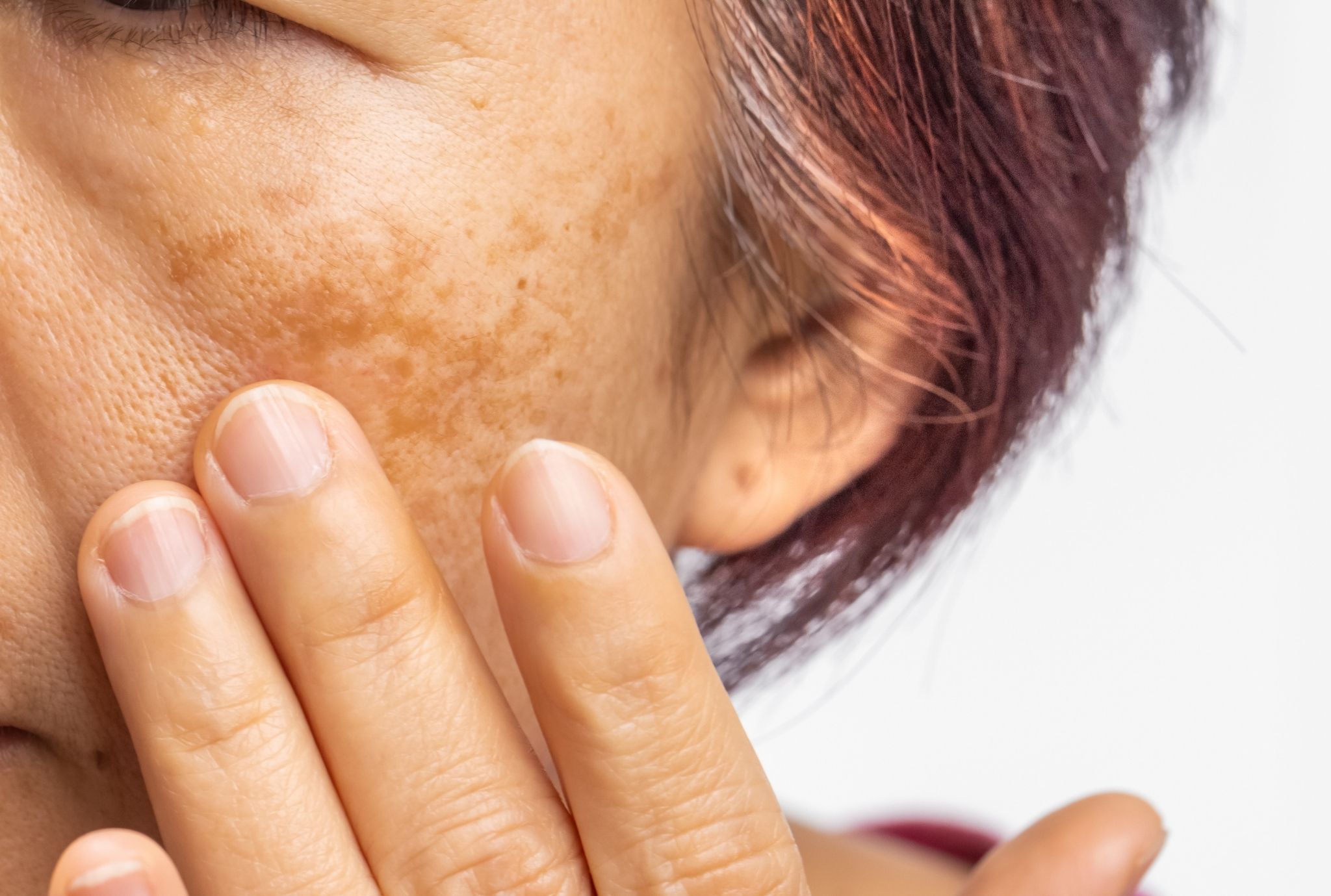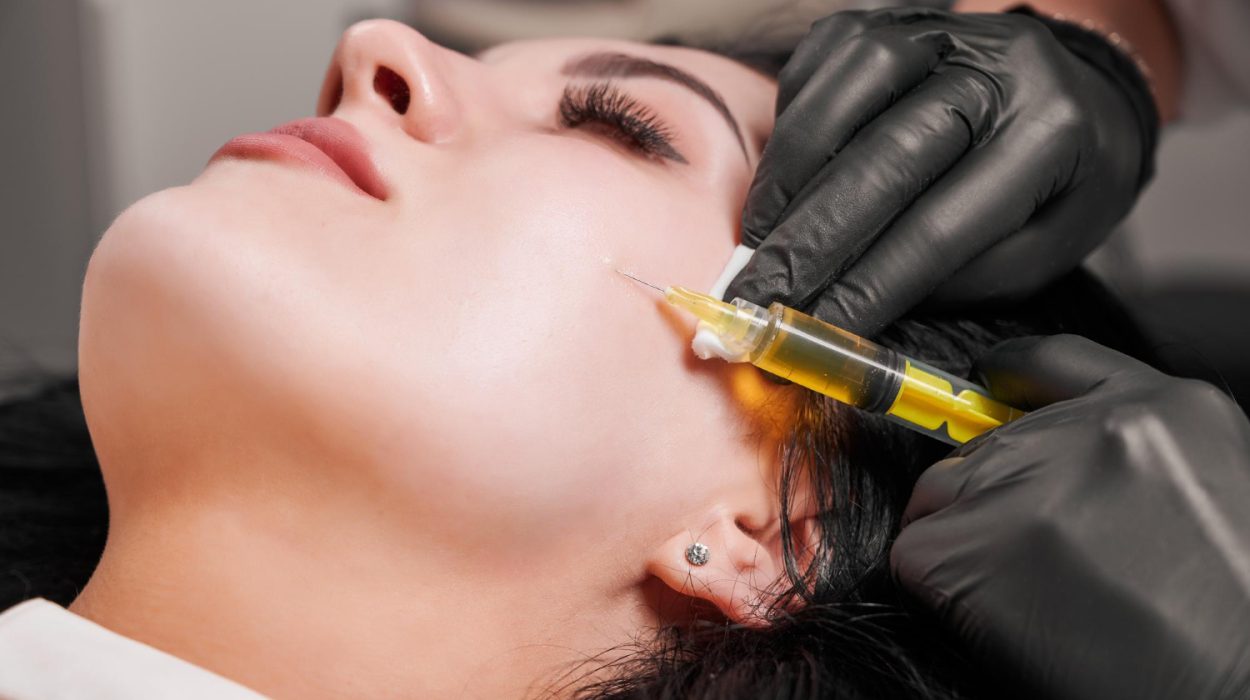Hyperpigmentation is dark patches or spots on the skin, which can occur due to several factors, like exposure to the sun, some medications, pregnancy, or health conditions like Addison's disease.
Hyperpigmentation can affect anyone. It often gives rise to uneven skin tone, which can affect self-confidence. While increased pigmentation is not usually harmful, in some cases it can be a symptom of another medical condition. Hyperpigmentation can occur in small patches, cover large areas or even the entire body.
If you are living in Dubai and searching for an effective, science-backed solution, laser treatment for hyperpigmentation might be the answer.
In this blog, we take you through the different types of hyperpigmentation and how laser treatment is an effective way to reduce it.

Types of Hyperpigmentation
While there are several different types of hyperpigmentation, the most common ones are:
Sunspots
Also called liver spots or age spots, these areas of pigmentation are caused by prolonged sun exposure.
Post-inflammatory hyperpigmentation (PIH)
This type of hyperpigmentation occurs as a result of injury or inflammation to the skin following acne, injury or burns.
Melasma
Melasma is a type of hyperpigmentation that develops due to hormonal changes, often during pregnancy. While these pigmented patches can appear anywhere on the body, they are more common on the face and the abdomen. Topical creams and chemical peels can help fade mild pigmentation. However, stubborn patches most likely require laser intervention.
Why Lasers for Hyperpigmentation?
Laser therapy is an effective solution for hyperpigmentation. It targets dark spots by emitting focused light energy that breaks down pigment into small particles, which are then removed by the body's natural mechanisms through the lymphatic system or regular skin cell turnover.
Popular types of lasers used for hyperpigmentation at Hortman Clinics include:
- BBL (BroadBand Light)
- HALO
- MOXI
- ClearSilk
- Tixel
- UltraClear
- Er: YAG (Sciton)
- Picosecond Lasers
Each of these lasers offers unique benefits, but the best choice for you depends on your skin type and the severity of pigmentation.
Benefits of Laser Pigmentation Treatment
Laser pigmentation treatment is a preferred choice of dermatologists and their patients due to the many benefits it offers over other alternatives:
Laser devices target melanin-producing cells without harming surrounding skin. This precision allows effective treatment of pigmented areas while minimising the risk to healthy skin.
Most patients can see evident results and a significant reduction in pigmentation, with clearer, more even-toned skin after just a few sessions.
Since laser procedures are minimally invasive, most people require little or no downtime and can resume daily activities immediately, with mild redness or sensitivity that fades in days.
Since lasers target pigment cells deep inside the skin, they are effective for stubborn pigmentation.
In addition to reducing pigmentation and spot reduction, laser therapy can also stimulate collagen, improving overall skin texture, smoothness, and glow.
Laser depigmentation treatment requires no incisions and stitches. These procedures are generally safe for all types of skin tones when performed by trained dermatologists, and the risk of side effects is low.
Some clinical studies have shown that laser pigmentation treatment may reduce pigment reduction for many years after treatment, especially with advanced laser types
Why Consider Laser Treatment for Hyperpigmentation in Dubai?
Dubai's weather, year-round climate, and sun exposure can worsen pigmentation. This makes professional laser treatment a popular and often necessary choice for most people seeking radiant skin.
Leading laser clinics in Dubai, like Hortman Clinics, offer advanced technologies to address hyperpigmentation effectively and safely for a wide range of skin types, including darker complexions.
Here's why you should consider getting a laser treatment for hyperpigmentation in Dubai:
- Access to world-class aesthetic clinics and board-certified dermatologists
- Availability of FDA-approved, state-of-the-art laser technologies
- Customised treatment plans suited for Middle Eastern, Asian, and mixed skin tones
- Quick recovery times and non-invasive options for busy professionals
What to expect with a Laser Treatment for Hyperpigmentation?
Laser treatment sessions for hyperpigmentation are usually quick, taking 15 to 45 minutes per session, depending on the treatment area.
- You'll undergo a skin consultation and patch test.
- Avoid sun exposure and active skin treatments (like retinoids or peels) for at least 5–7 days before the procedure.
You may be asked to stop using certain medications or skincare products.
- The patient and the operator (dermatologist or the laser therapist) wear protective eyewear.
- The therapist or dermatologist may apply a numbing cream to reduce discomfort.
- The laser device is then passed over the target areas multiple times.
- The treated areas on the skin may appear red or slightly swollen.
- Pigmented spots may darken temporarily before flaking off.
- Ensure adequate sun protection (use a high SPF sunscreen), follow gentle cleansing, and use soothing moisturisers.
Most people require 3 to 6 sessions spaced 3 to 4 weeks apart for optimal results.
Spotlight on Success: Tackling Pigmentation with Laser Therapy
A young female visited Hortman Clinics, Dubai, with a complaint of stubborn facial stains that just wouldn't reduce with home remedies or other professional treatments.
After a thorough evaluation of her skin condition and pigmentation issue, our expert dermatologists at Hortman Clinics recommended the usage of PICO + UltraClear laser combo.
We were able to reduce the stubborn pigmentation and, at the same time, tackle fine lines. This laser combination also enabled us to revive her dull and tired skin, giving her face a fresh, glassy glow!
What are the side effects and risks of Laser Treatment for Hyperpigmentation?
While laser treatment is generally safe, some people may experience side effects:
- Temporary redness or swelling
- Peeling or crusting
- Hyperpigmentation or hypopigmentation (especially if post-care isn't followed)
- Sensitivity to sunlight
To reduce risks, follow all pre- and post-procedure instructions and avoid direct sun exposure for at least 1–2 weeks.
Cost of Laser Treatment for Hyperpigmentation in Dubai
The cost of laser treatment for hyperpigmentation varies, depending on the clinic, technology used, area treated, and the number of sessions required.
At Hortman Clinics, the cost of laser treatment for hyperpigmentation ranges from AED 500 to AED 5000, depending on the type of laser and the number of sessions required.
To know more about the cost of your pigmentation treatment with lasers, schedule an appointment with our skin expert.
Key Takeaway!
Hyperpigmentation can be frustrating and often embarrassing. But it is a treatable issue, especially with the right laser technology and a personalised care plan. Whether you are dealing with sunspots, acne scars, or melasma, consult with a trusted clinic to find the laser option that works best for your skin tone and pigmentation type.
Ready to reclaim clearer, even-toned skin? Start your journey with us at Hortman Clinics, Dubai or Hortman Clinics, Jumeirah, by booking a consultation today!
FAQs
Frequently asked questions
Laser treatment for hyperpigmentation is safe and effective for most skin types, including dark skin tones. This is made possible by modern lasers like the Nd: YAG and Pico. Since individuals with darker skin types are more prone to increased pigmentation with laser use, they must always consult an experienced dermatologist before undergoing the procedure.
Most people require 2 to 6 laser treatment sessions, spaced out over several weeks. The number of sessions you will require typically depends on factors like type and depth of pigmentation, skin type and the laser technology used.
Laser procedure to treat hyperpigmentation is a comfortable and nearly painless procedure. Most people only experience mild discomfort, stinging or warmth when the device passes over the target areas.
After a laser procedure for hyperpigmentation, many people experience temporary redness or swelling, as well as peeling or crusting of the skin. You may notice increased pigmentation if post-care instructions are not followed.
Before a laser treatment for hyperpigmentation avoid sun exposure, tanning, and harsh skincare products, and inform your doctor about any medications.
After treatment:
- Use sunscreen diligently
- Keep your skin moisturised
- Avoid picking or scratching the area, skip makeup and hot water until healed
- Follow all aftercare instructions from your dermatologist
Laser treatments are effective in reducing hyperpigmentation and give clearer, more even-toned skin. However, the longevity of results depends on the underlying cause of the pigmentation and other contributing factors like sun exposure, hormonal changes and skin injury.
The following individuals must avoid laser treatment for pigmentation:
- Those having active skin infections or open wounds
- Pregnant and lactating women
- Anyone who has used a sunbed or undergone tanning in the past month
- People taking medications for photosensitivity
- Individuals with a history of scarring
HORTMAN CLINICS NEWS
Related News
We are here for you. Always.
Everything we do is tailored to your needs, this is why we take our time to take care of you and answer all your questions.




